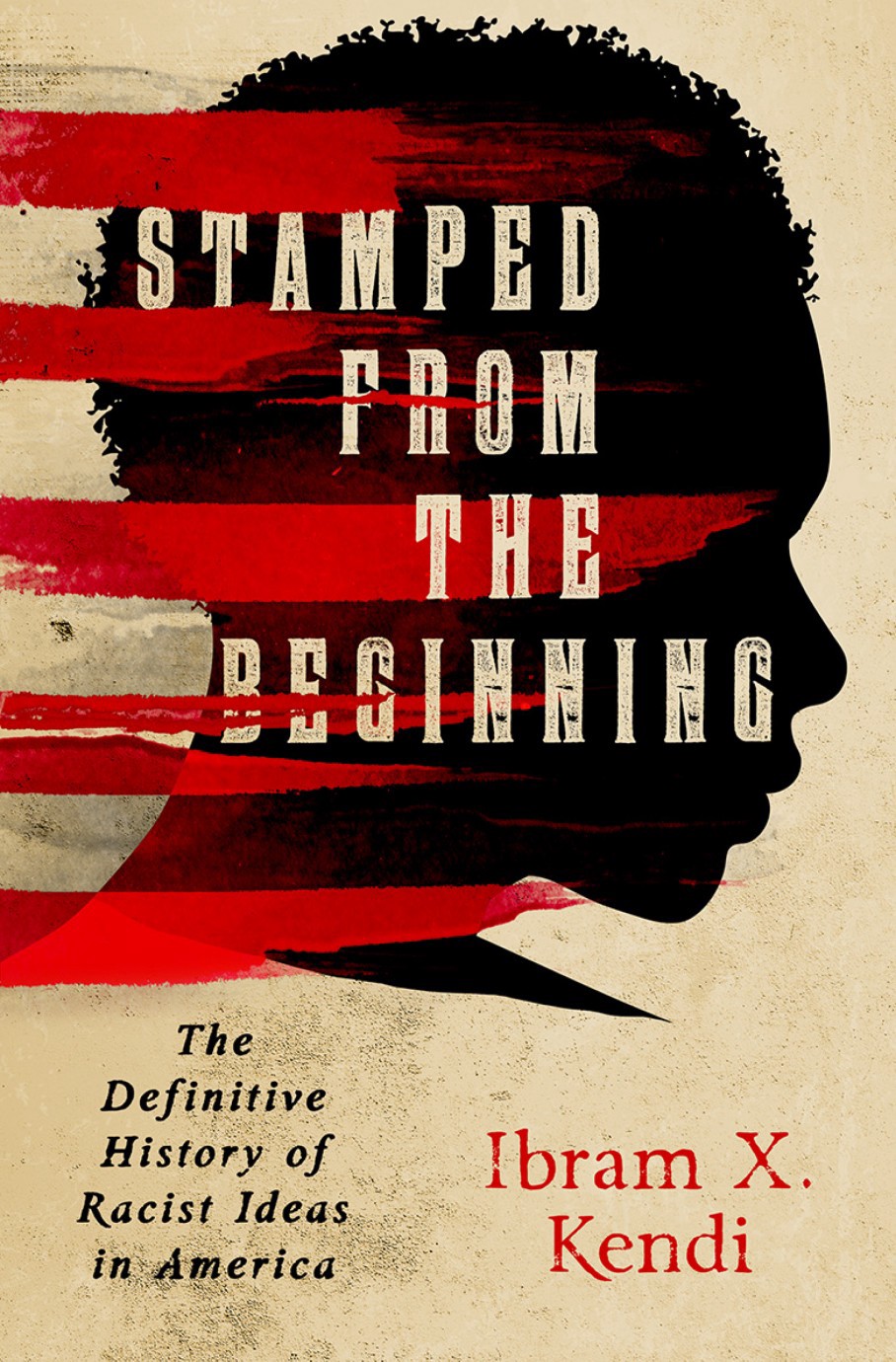A conversation with National Book Award-winner Ibram X. Kendi.
By Corey Atad
Students pray in the aftermath of two racially motivated student brawls at Thomas Jefferson High School in Los Angeles, California. (Photo: David McNew/Getty Images)
Accepting the non-fiction prize at this year’s National Book Awards ceremony, Ibram X. Kendi told the gathered audience, “I’ll never lose my faith that you and I can create an anti-racist America where racial disparities are non-existent, where Americans are no longer manipulated by racist ideas, where black lives matter.” Kendi had won for his book Stamped From the Beginning: The Definitive History of Racist Ideas in America. It was only nine days after the election of Donald Trump, and that night the awards felt like a rebuke to the racist forces behind Trump’s victory. Along with Kendi, the night’s winners included Congressman John Lewis for his graphic novel, March, about the civil rights movement, and novelist Colson Whitehead for The Underground Railroad.
Stamped From the Beginning’s central thesis is that, contrary to the common notion that racist ideas are the product of hatred and ignorance, racist ideas in fact emerge via intellectual thought, concocted by intelligent thinkers to justify self-interested, racially discriminatory policies. According to Kendi, racist ideas breed ignorance and hatred, not the other way around. Kendi, a historian at the University of Florida, traces the emergence and development of racist ideas in America, from the arrival of the first African enslaved people in Virginia, to the present moment, enlisting figures like Cotton Mather, W.E.B. Du Bois, and Angela Davis as guides through this history.
In the wake of Trump’s election, commentators continue to debate the decisive importance of racism versus economic anxiety in the outcome. Viewed in light of the history lesson that Kendi provides, it becomes clear that the two issues are inextricably linked: Economic anxiety leads to racially discriminatory policy, with racist ideas ready to justify it all.
Pacific Standard spoke with Kendi about Stamped From the Beginning, the results of the election, Trump’s place in the history of American racist thought, and prospect for a future anti-racist America.

(Photo:
Ibram X. Kendi)
Were you surprised on Election Night?
I was surprised that Hillary [Clinton] did not win the election, but I was mainly surprised because the prognosticators pretty much had guaranteed that she going to win. When Trump began to pick up crucial states, and it appeared that the combination of a huge turnout among white voters combined with — we don’t know, but it seems as if the cumulative effect of voter restriction policies led to a lesser turnout among some of Clinton’s core supporters.
It didn’t surprise me because, to me, Trump represents the progression of bigotry in America. I think that’s something that people have yet to come to grips with, because even people who consider themselves to be on the left and liberals have somewhat digested post-racial, and even post-bigotry, ideology.
Do you think that’s been exacerbated by the last eight years under Barack Obama? Have we been living in a fantasy?
I think so. Clearly, I think Obama’s election was historic. Of course, his election brought on the ideology from the right that we’re living in a post-racial society. Even the left began to believe some of that. The belief that we had come so far, or that race and racism and bigotry is not still pervasive and endemic and has the capacity to even elect a president. People believed that we had moved past that. I’d never believed that.
The actual record of what was happening should have showed us that that was not the case. From the rise of the Tea Party, supplemented by the rise of Sarah Palin, supplemented by the rise of Trump. Even though we had all the evidence that showed us that racism and sexism were still pervasive, we, of course, wanted to ignore that evidence and focus on the evidence of Obama as president.
So you see Trump as being part of a lineage?
Precisely. Stamped From the Beginning takes a long view of the history of racism or, more specifically, racist ideas. Trump is really the product of the post-racial ideology, and even colorblind ideology, which preceded it. The reason why Trump comes on the back end of that is because, over the last 20 years, but, more specifically, as a result of the Great Recession, there has been the decline of incomes. People needed something to blame.
They had been taught that who is to blame is those black people who are on welfare; those immigrants who, apparently, are pouring into our country; those Muslims who are trying to take our freedoms and our lives. It became only natural that they would blame those people, while simultaneously thinking that those statements were not representations of bigotry. Because they are not bigots. Because no one’s a bigot. Because America has moved past bigotry.
Some of those counties that Obama won in 2008 and 2012 swung to Trump very heavily, sometimes by 20 or 30 points. How are you able to reconcile that?

Stamped From the Beginning: The Definitive History of Racist Ideas in America. (Image: Public Affairs Press)
I think it had to do with Clinton and Trump as candidates. I also think that another way I reconcile it is that you have some people who — people have written about this — who voted for Obama to demonstrate that they’re not racists. It was this sort of active display that they’re not racist. Since they got that off their chest, now they can go back home to their racism. When Trump’s appeal came, they were led by it. Of course, we’re living in a post-racial society, so in their mind, they weren’t led by his racism.
I also think that Obama represents a different type of blackness to white moderates than Black Lives Matter does. I think, for some of these whites at the center who have been alienated from progressivism because of the more radical manifestations of Black Lives Matter, that may have caused some of them to go into the comfortable arena of Trumpism.
I guess that leads to a more difficult question. How do you make the anti-racist case without alienating people?
I don’t know if that’s possible for people who have consumed racist ideas and people who, simultaneously, do not have open minds. There are people who have consumed racist ideas, but are still searching and looking for truth and their minds are truly open. They would be willing and open to listening to the anti-racist position that black people, or even brown people, are not to blame — that it’s really these policies that are to blame. If they’re closed-minded and they have consumed racist ideas, there’s almost no way to reach them. That’s why in the book I advocate that people, if they really want to undermine bigotry and racism in particular in America, should focus on racist policies.
Now we’ve got Republicans controlling almost every level of government. Do you see any avenues to attack those racist policies?
Yes. Republicans control the federal government. They control many state governments. They don’t control all state governments, nor do they control all cities. For those locales that are still controlled by Democrats — or those locales controlled by Republicans, but where Republicans need Democrats in order to get something through — I think those are the places, during the moment of Trump, that anti-racists should focus their efforts on.
Clearly, with the federal government, and even state governments, it’s very hard to crack up against that power. That’s not to say we shouldn’t resist the racist policies that are going to come down the line. We certainly should. I think what we can do is focus on those districts and those cities and those states where we are still in control and make sure we’re eliminating the racist policies in those states — because there are still racist policies in blue states and in blue cities.
Your book just won the National Book Award. John Lewis and Colson Whitehead both won prizes at the same ceremony. Do you see those as promising signs?
I think it is promising signs. One of the things that people have stated, or people have come to realize as a result of Trump’s election, is that this nation is divided. We should recognize that really there are two Americas or three Americas. Within the America that is inclusive, within the America that’s striving to be anti-racist, within the America that’s striving for progressive causes, it makes complete sense that those books would win. To me, this is a product of racial progress, of that America that elected Obama.
We’re looking at four years, or more, of Trump. What would you say are the ideas we need to keep in mind, or even fight for, to get us through this time?
I think the message from a long view of history is that America has elected quite a few Trumps, presidents who actually did a tremendous amount of damage to this country. Some of those damages Americans were still reeling from when Obama was elected. I think we should recognize that and recognize that America has had the capacity to pick itself back up. We’ve only had that capacity if we had faith that it was possible.
That’s why in my acceptance speech for the National Book Award I emphasized that we need to have faith that we can create an anti-racist America. We need to have faith that we can find our way out of this prison that could be seemingly surrounding us over the next four years. If we don’t believe we can get out, then we’re not going to even strive to get out. I’m hoping that people will not despair and that people will resist — that people will read and try to figure out what they should resist, and how they can resist, because there are many forms of resistance. We’ll need all those forms of resistance in the next four years.
This interview has been edited for length and clarity.





